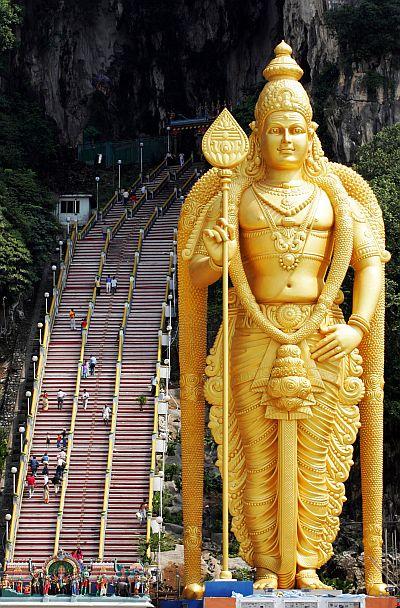
India's temples are resisting divulging their gold holdings - perhaps nearly half the amount held in Fort Knox - amid mistrust of the motives of authorities who are trying to cut a hefty import bill that is hurting the economy.
The Reserve Bank of India (RBI), which has already taken steps that have slowed to a trickle the incoming supplies that have exacerbated India's current account deficit, has sent letters to some of the country's richest temples asking for details of their gold.
It says the inquiries are simply data collection, but Hindu groups are up in arms.
"The gold stored in temples was contributed by devotees over thousands of years and we will not allow anyone to usurp it," said V Mohanan, secretary of the Hindu nationalist Vishwa Hindu Parishad organisation in Kerala, in a statement.
…

Indians buy as much as 2.3 tonnes of gold, on average, every day - the weight of a small elephant - and what they don't give to the gods is mostly hoarded.
Jewellery is handed down as heirlooms and stored away with bars and coins as a hedge against inflation or a source of quick funds in an emergency.
That is costing the economy dear. Gold imports totalled $54 billion in the year ending March 31, 2013, the biggest non-essential item shipped in from overseas and a major factor in swelling the current account deficit to a record in 2012/13.
Guruvayur temple, in Kerala, one of the most sacred in India and boasting a 33.5-metre (110-ft) gold-plated flagstaff, has already told the RBI it won't divulge any details.
"The gold we have is mostly offered by the devotees. They would not like the details to be shared with anybody," said V M Gopala Menon, commissioner of the temple's administrative board.
…
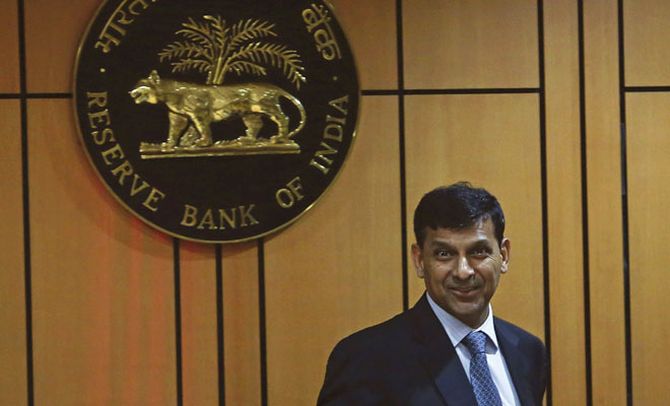
The World Gold Council estimates there are about 2,000 tonnes of gold locked away in temples - worth about $84 billion at current prices - which Indian devotees have offered in the form of jewellery, bars, coins and even replicas of body parts, in the hope of winning favours from the gods or in thanks for blessings received and health restored.
Curbing gold imports and getting the gold squirreled away back into circulation has become a priority for the government and RBI this year. Import duty is at a record 10 percent and the latest new rule - that 20 percent of all imports must leave the country as jewellery exports - caused confusion that dried up buying for two months.
The head of the main opposition Bharatiya Janata Party (BJP) in Kerala, V Muralidharan, said the RBI wanted to "take possession" of the gold and maybe sell it for dollars.
Data Collecting?
The RBI said there was "no proposal under its consideration to convert idle gold into bullion at this juncture".
But its letters, sent to leading temple trusts in Kerala, were prompted by a report looking at "issues related to gold imports" and loans outside the banking system in February, which zeroed in on temples and domestic hoards for fresh supplies.
…
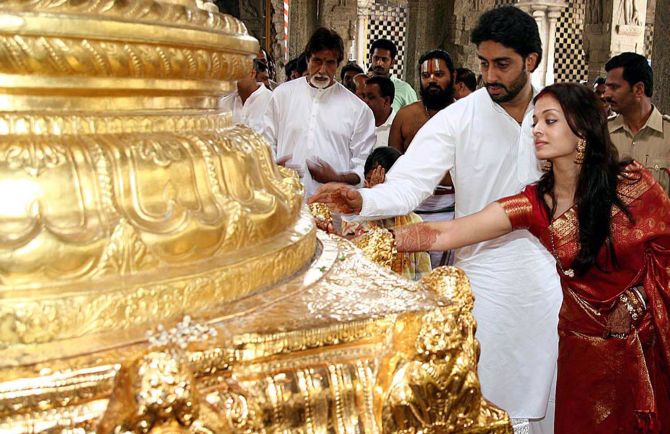
Under the heading "supply-related measures", the report looks at recycling domestic gold and notes: "Temples in India hold large quantities of gold jewellery offered by devotees to the deities."
Subha Unnikrishnan, a clothes shop owner worshipping at one of the temples in Kerala's capital Thiruvananthapuram, said whatever had been given to the temple should stay there.
"We have given it to the god with a purpose," he said. "Nobody can take them away."
Of the three major temple boards in Kerala, which administer more than 2,800 temples, Cochin board has also decided against providing details of its gold, while another has yet to decide and a third says it has not yet received a letter from the RBI.
Some of them cite security reasons for their reticence - and the wealthiest temples do have tight controls and metal detectors at gates to keep their assets safe.
…
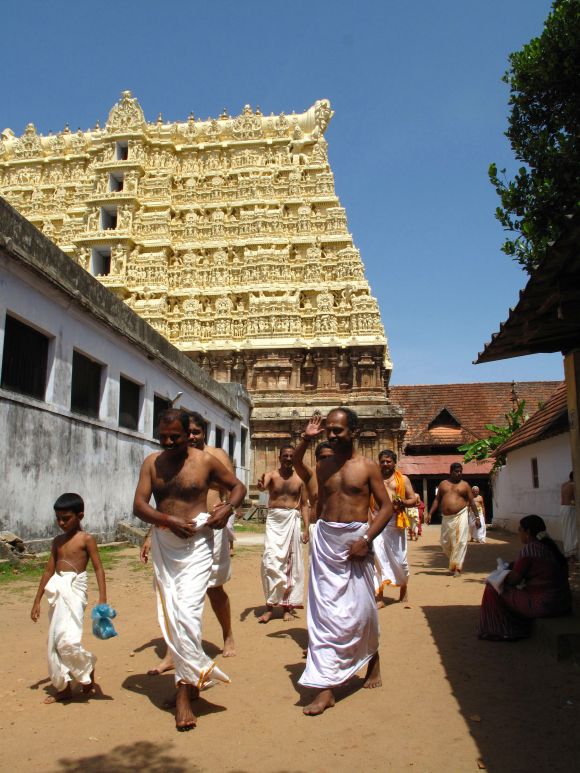
There has been no inquiry from the RBI yet at the centuries-old Sree Padmanabhaswamy temple, where two years ago treasure then estimated to be worth over $20 billion - more than India's education budget - was discovered in secret subterranean vaults. But its hoard is already being checked by the Supreme Court to make sure it is adequately protected.
There are some, for sure, who feel the temples should divulge their centuries of gold offerings.
"Everything the temple gets should be known to the devotees," said Shankaram Kutty, head of an advertising firm based in Cochin, who goes at least once a year to Guruvayur with an offering. "I feel every temple should declare their assets."
Mumbai's Shree Siddhivinayak Ganpati temple, often visited by Bollywood celebrities, had already put 10 kg (22 lbs) of its gold into a bank deposit scheme. It still has 140 kg in its vault.
"The gold we have is the nation's property, we will be proud if the nation can benefit from it," said Subhash Vitthal Mayekar, chairman of the temple's administrative trust. He has not yet received an inquiry from the RBI.
…
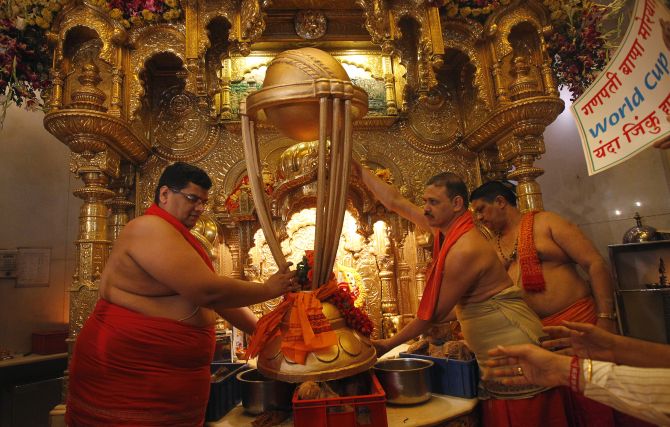
It is not alone. The Tirupati temple in Andhra Pradesh, considered one of India's richest, has lodged 2,250 kg of gold with the State Bank of India, which pays it interest.
As the central bank ponders its options, it could take heart that the temples themselves are already doing their bit to circulate the gold.
"We use some of it for making gold lockets that we sell in our temple counter. For making the lockets, we send some gold to the Mumbai mint through the State Bank of India, which is one of our bankers," said a source at the Guruvayur temple's administration.
(Additional reporting by Siddesh Mayenkar and Suvashree Dey Choudhury in Mumbai; Malini Menon in New Delhi; A. Ananthalakshmi in Singapore)